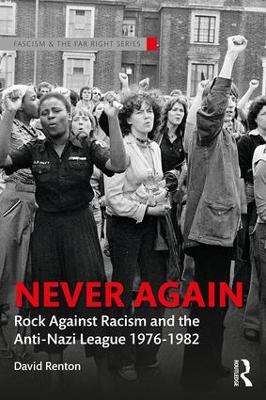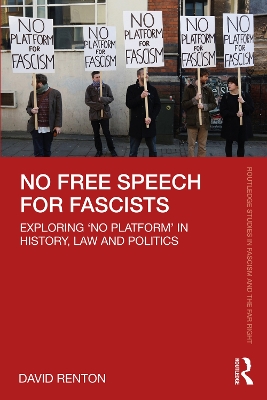Routledge Studies in Fascism and the Far Right
2 total works
By 1976, the National Front had become the fourth largest party in Britain. In a context of national decline, racism and fears that the country was collapsing into social unrest, the Front won 19 per cent of the vote in elections in Leicester and 100,000 votes in London.
In response, an anti-fascist campaign was born, which combined mass action to deprive the Front of public platforms with a mass cultural movement. Rock Against Racism brought punk and reggae bands together as a weapon against the right.
At Lewisham in August 1977, fighting between the far right and its opponents saw two hundred people arrested and fifty policemen injured. The press urged the state to ban two rival sets of dangerous extremists. But as the papers took sides, so did many others who determined to oppose the Front.
Through the Anti-Nazi League hundreds of thousands of people painted out racist graffiti, distributed leaflets and persuaded those around them to vote against the right. This combined movement was one of the biggest mass campaigns that Britain has ever seen.
This book tells the story of the National Front and the campaign which stopped it.
No Free Speech for Fascists explores the choice of anti-fascist protesters to demand that the opportunities for fascists to speak in public places are rescinded, as a question of history, law, and politics. It explains how the demand to no platform fascists emerged in 1970s Britain, as a limited exception to a left-wing tradition of support for free speech.
The book shows how no platform was intended to be applied narrowly, only to a right-wing politics that threatened everyone else. It contrasts the rival idea of opposition to hate speech that also emerged at the same time and is now embodied in European and British anti-discrimination laws. Both no platform and hate speech reject the American First Amendment tradition of free speech, but the ways in which they reject it are different. Behind no platform is not merely a limited range of political targets but a much greater scepticism about the role of the state. The book argues for an idea of no platform which takes on the electronic channels on which so much speech now takes place. It shows where a fascist element can be recognised within the much wider category of far-right speech.
This book will be of interest to activists and to those studying and researching political history, law, free speech, the far right, and anti-fascism. It sets out a philosophy of anti-fascism for a social media age.

